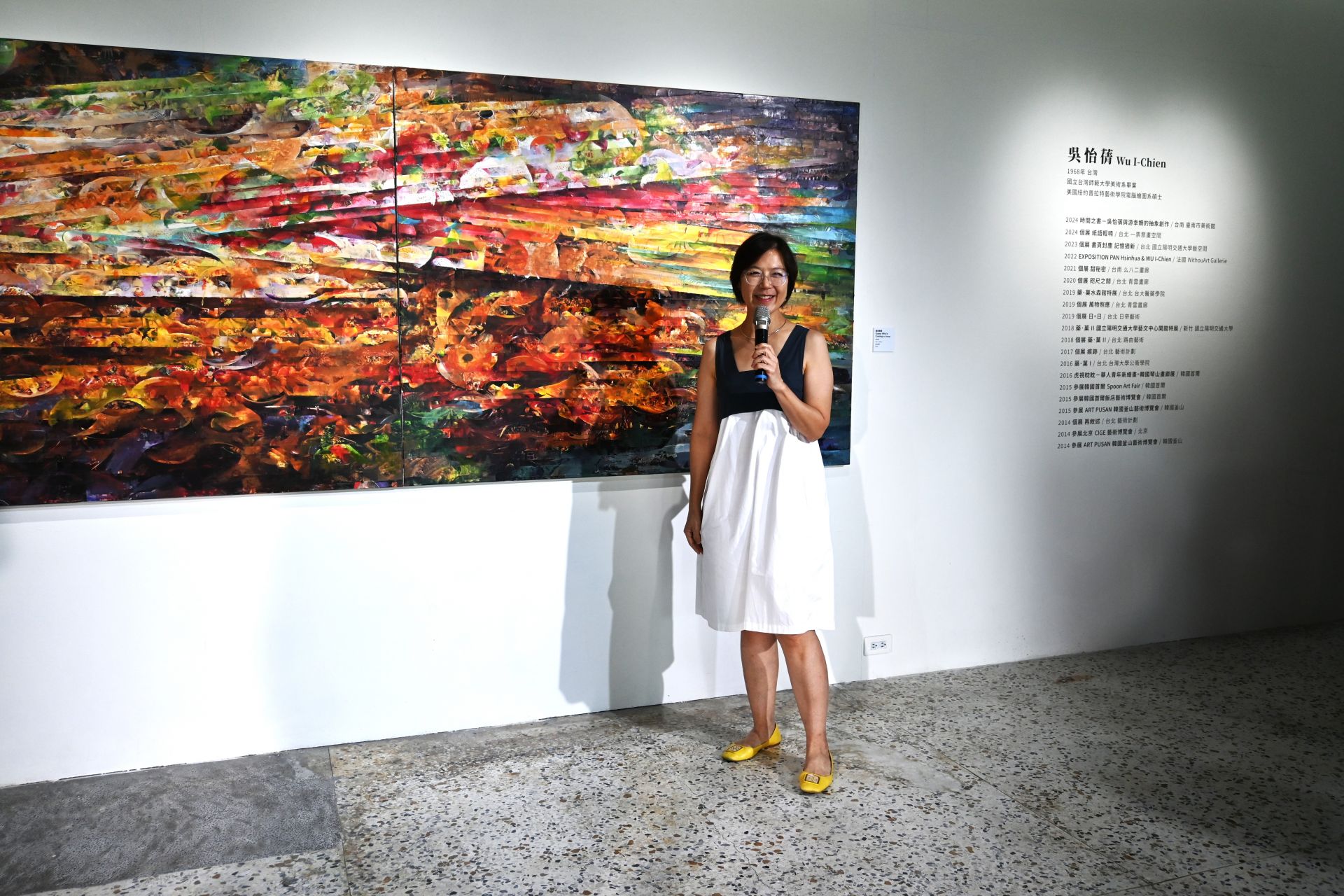The "Green Economy X Sustainability Transition" lecture series: Repairing the Relationship Between You and Your Belongings.
The event began with an opening speech by Shang-Rung Wu, the Head of the Planning and Management Division at the NCKU Office of Research and Development. Wu mentioned successful cases of circular economy, sharing her experience in Finland where she observed an efficient recycling system. She noted that not only was there effective waste sorting, but there were also recycling machines that exchanged recyclables for money. Citizens could bring aluminum cans or plastic bottles to these machines, which would automatically scan and identify the type of waste, classify it, and then provide consumers with a voucher. This realization led students to understand that practicing a circular economy doesn't necessarily require extensive knowledge; it can be implemented in daily life.
At the beginning of the lecture, Associate Researcher Chiao-Ling Lyu discussed the concepts of circular economy and linear economy in a light and cheerful manner. She explained that a linear economy is essentially a model where a product goes from extracting raw materials to consumption and eventually disposal. In contrast, the key difference in a circular economy is that after the product is consumed, it is recycled and remanufactured, entering a new cycle. This approach not only reduces waste but also efficiently utilizes materials. Additionally, she mentioned the well-known butterfly diagram in circular economy, emphasizing that "maintenance" holds the most value in the industrial cycle.
Because maintenance holds value, the concept of the "French Repairability Index" emerged. This index has a maximum score of 10, with a higher score indicating that a product is more easily repairable. Subsequently, Europe introduced the Right to Repair legislation, which promotes measures in the design, sales, and usage phases. In the design phase, products or services are designed to enhance their repairability. In the sales phase, information disclosure influences purchasing policies. In the usage phase, consumer rights to repair are protected, aiming to reduce waste.
Associate Researcher Chiao-Ling Lyu also shared her experience attending the World Circular Economy Forum in the Netherlands in 2023, explaining how the Dutch integrate circular economy principles into their daily lives. For example, at the forum, participants used utensils made from natural materials, consumed vegetarian food, and utilized recycling machines for voucher exchanges. She quoted Janez Potočnik, the co-chair of IRP, saying, "Changing our relationship with nature is imperative. The future will be green, or there will be no future." This emphasizes the interconnectedness of humanity and nature, highlighting that damaging nature is equivalent to undermining our own environmental sustainability. Therefore, a green future is essential for our continued existence.
In the end, Associate Researcher Chiao-Ling Lyu and the students interacted, discussing how students practice circular economy in their daily lives. One student mentioned buying second-hand items from the NCKU thrift shop, saving money and reducing waste. Another student shared their practice of repairing damaged items to extend their lifespan. Additionally, many students mentioned bringing their own eco-friendly cups and utensils to minimize waste. From the dialogue, it is evident that practicing circular economy is not difficult – it's visible everywhere in daily life for those willing to adopt it.
The third session of the "Green Economy X Sustainability Transition'' lecture series is scheduled for November 30th. All students and faculty members interested in sustainable development are encouraged to stay tuned for updates on the NCKU Circular Economy Society's fan page and campus email, ensuring they don't miss the next exciting event!
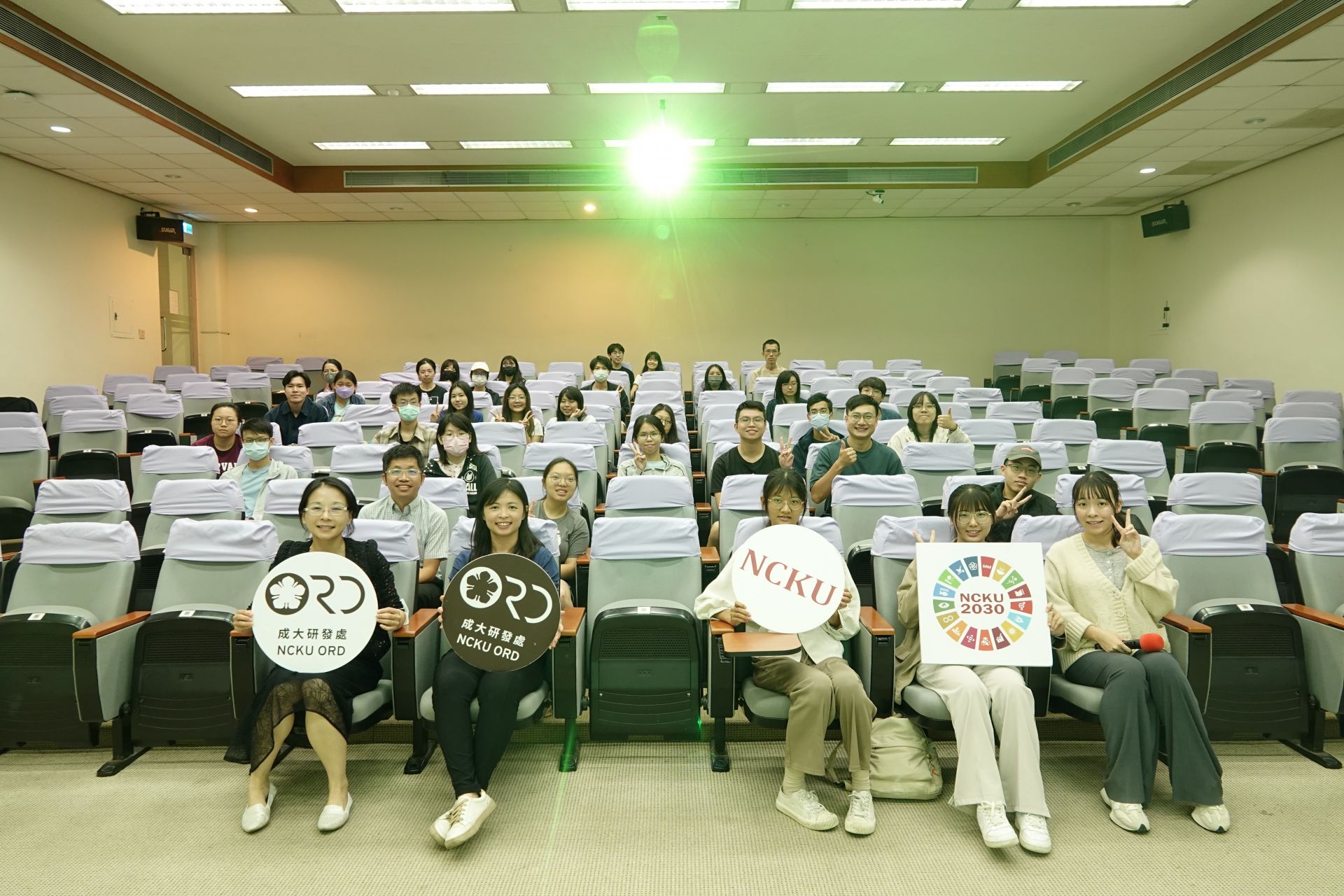
The second session of the "Green Economy X Sustainability Transition" lecture series was successfully held on November 9th.

NCKU Research and Development Office's Head of Planning and Management Division, Shang-Rung Wu (left), expresses gratitude to the speaker, Associate Researcher and alumna of NCKU's Department of Chemistry, Chiao-Ling Lyu (right), from the Industrial Technology Research Institute's Green Energy Institute.
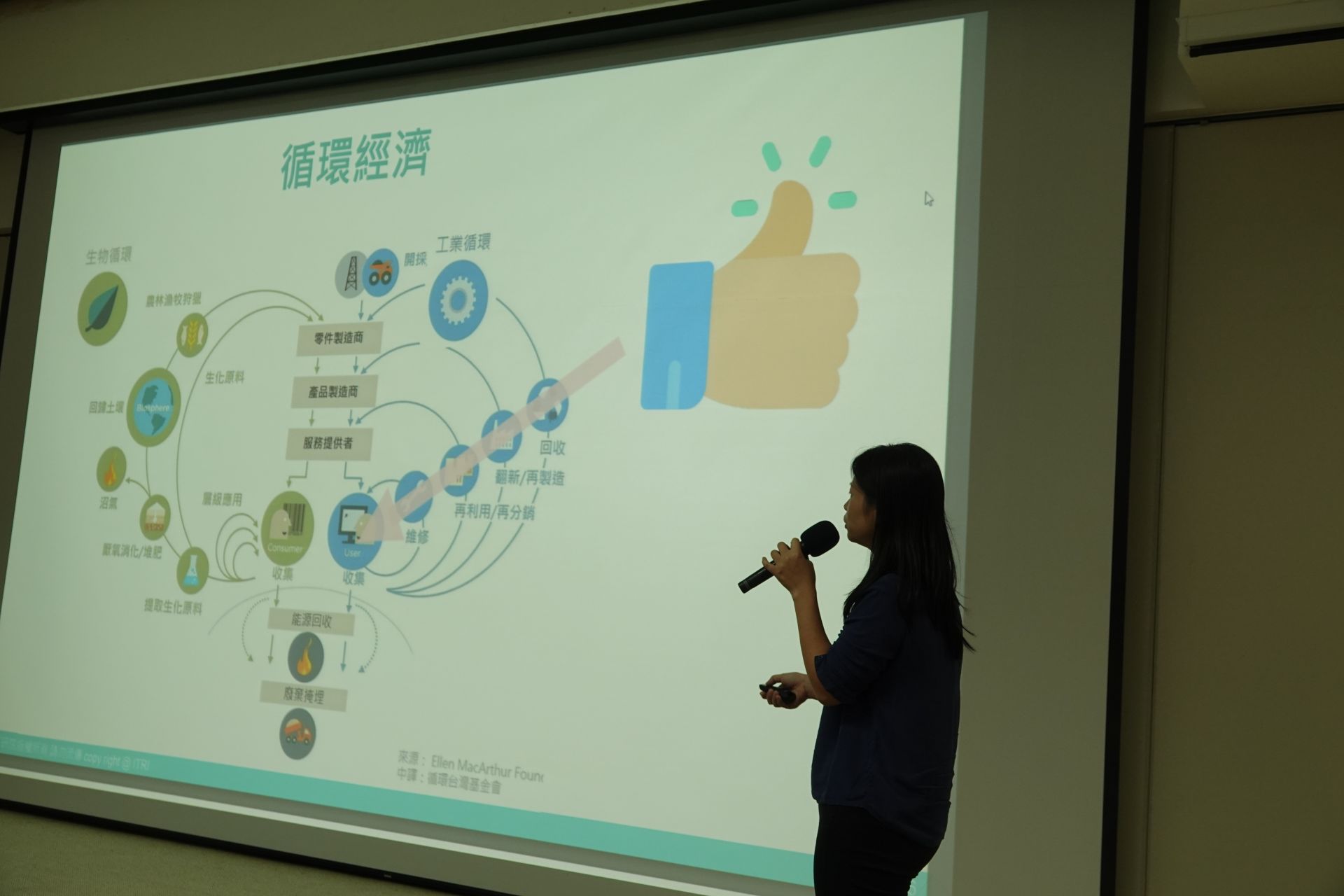
At the beginning of the lecture, Associate Researcher Chiao-Ling Lyu talked about circular economy and linear economy in a relaxed and pleasant way.
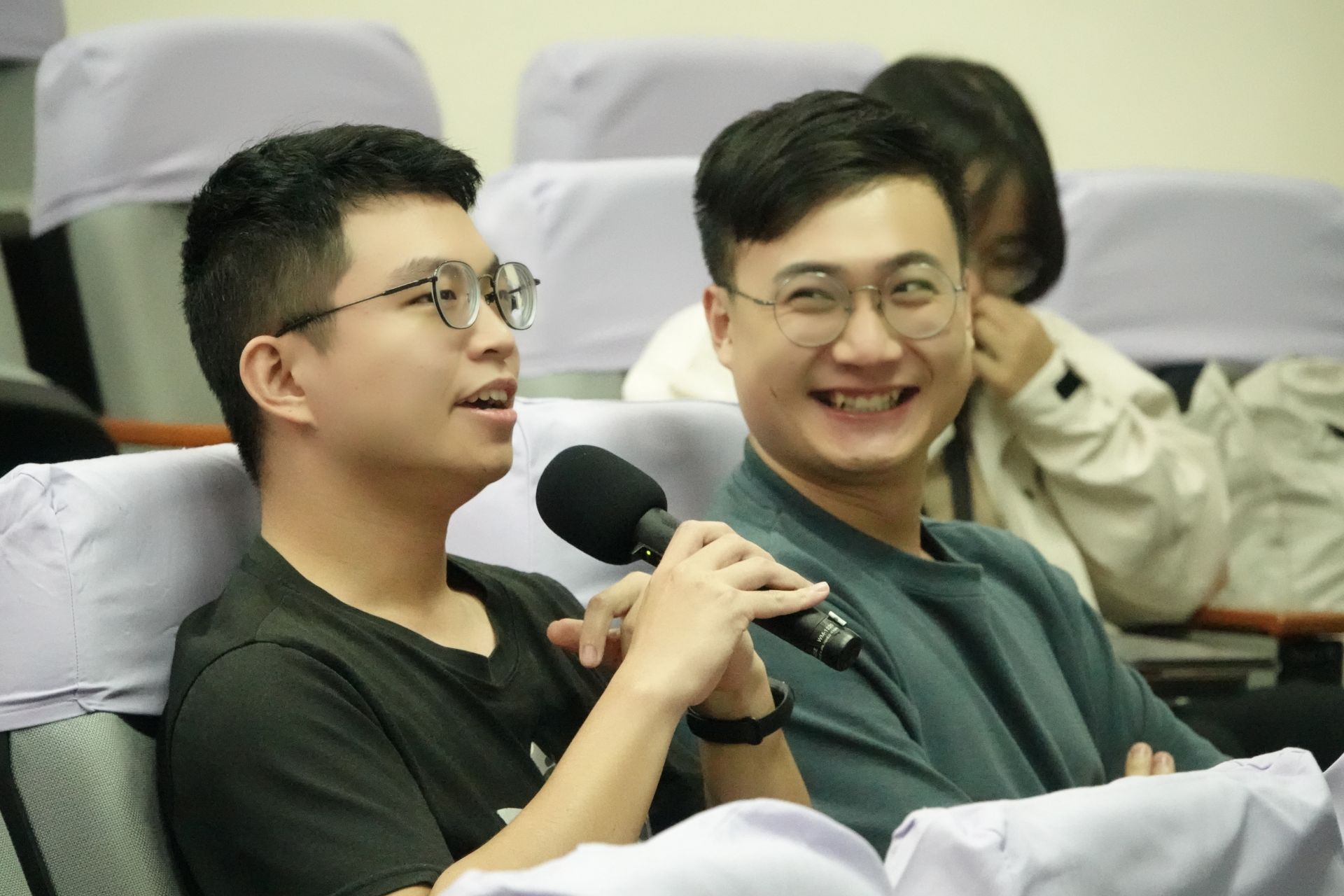
Students share how they practice circular economy in their daily lives.
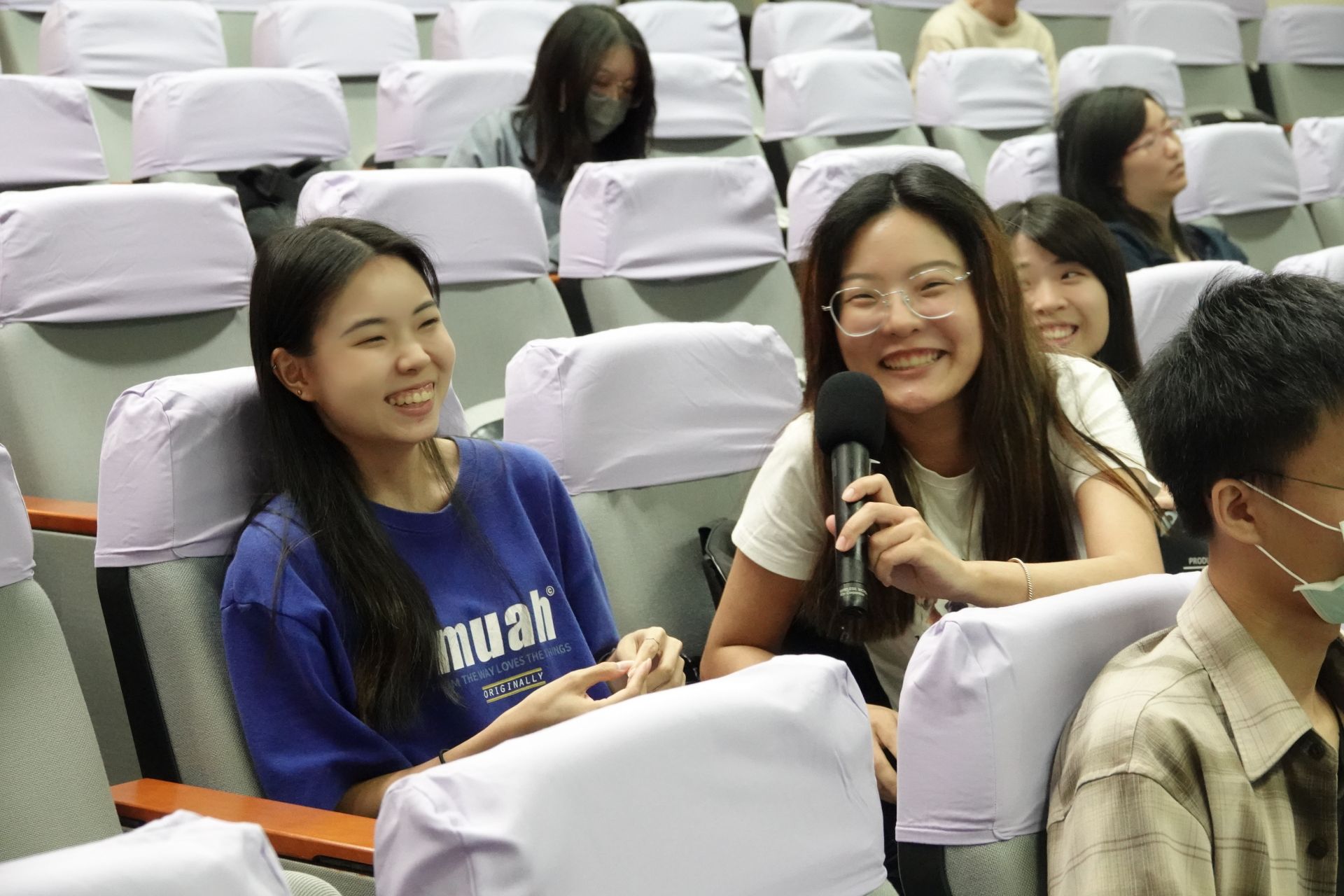
Many students mentioned that they bring their own eco-friendly cups and utensils to reduce waste.

SDG12“Circular Economy Exploration Workshop” to Explore Daily Waste Reduction and Sustainable Resource Recycling
View more
SDG12NCKU SIC joins the Net-Zero initiative by participating in the “Tainan Campus Net-Zero Green Life +1 Outreach Campaign.”
View more